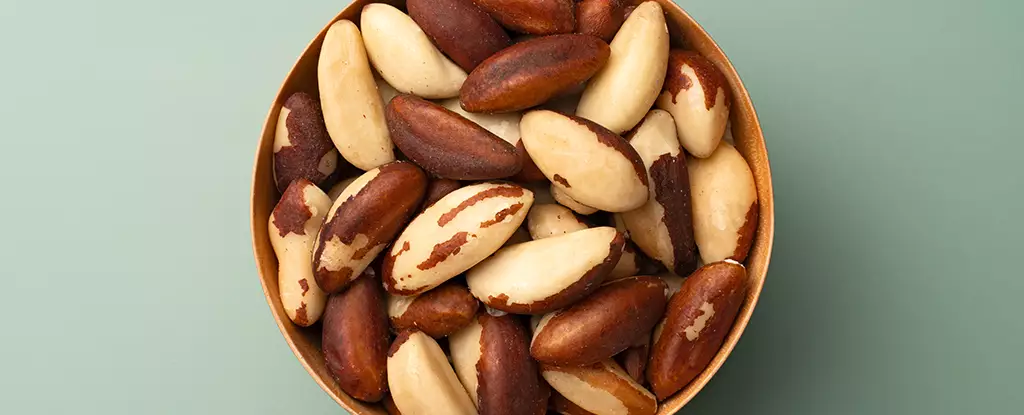Recent research has shed light on the positive effects of Brazil nuts, a nutrient-rich snack, on gut health, particularly in overweight and obese women. Conducted by scientists at the Federal University of Viçosa (UFV) in Brazil, this study focuses on the interactions between the consumption of Brazil nuts and various health markers related to the gut.
While the study had limitations—primarily related to its sample size and demographic diversity—it offers intriguing insights into how a simple dietary modification can contribute to improved intestinal health and potentially alleviate inflammation.
The study involved 46 female participants classified as overweight or obese based on their Body Mass Index (BMI). Participants were divided into two groups. One group incorporated two Brazil nuts into their daily snacks. In contrast, the control group avoided Brazil nuts entirely while adhering to a calorie-restricted diet over eight weeks.
The researchers aimed to evaluate the effects of Brazil nut consumption on key biomarkers associated with gut health. Initial assessments revealed that the group consuming Brazil nuts exhibited lower levels of inflammation compared to those who did not. Moreover, improvements in intestinal permeability were observed, suggesting a reduction in “leaky gut” symptoms, though these changes were modest.
What makes Brazil nuts particularly impactful in this context? The answer lies in their impressive nutrient profile, especially their high selenium content. Selenium is a trace element that plays several critical roles in maintaining overall health and combating oxidative stress. This antioxidant property is vital for protecting cellular integrity and reducing wear over time.
The researchers noted that “selenium plays a crucial role in controlling the inflammatory response,” which is especially relevant for individuals facing the complications associated with obesity. By mediating the interactions of oxidative stress pathways, selenium found in Brazil nuts may help mitigate the body’s inflammatory responses, which often escalate in individuals with excess weight.
Gut health is increasingly recognized as playing a pivotal role in overall physical well-being. A healthy gut can enhance nutrient absorption, support immune function, and even impact mental health through the gut-brain axis. Given this understanding, the modest improvements observed in the study, albeit minor, could translate into broader benefits if further substantiated by additional research.
The findings from the study underscore that while both groups profited similarly from weight loss, those consuming Brazil nuts might have contributed positively to their gut microbiome and inflammatory markers. This supports the notion that dietary interventions can serve as a complementary approach to managing obesity-related health issues.
While the initial results are promising, the researchers note that future investigations should involve more extensive and diverse populations to establish a clearer causal relationship between Brazil nut consumption and gut health improvement. Large-scale studies could enhance the understanding of how these nuts interact with various demographic and health variables.
Moreover, researchers should explore different dietary contexts, such as Brazil nut consumption combined with other nutrient-dense foods or within specific dietary regimens, to understand the synergistic effects better.
In closing, this study provides a glimmer of hope for those seeking to enhance gut health through simple dietary tweaks. Consuming just one or two Brazil nuts a day offers an easy and potentially effective strategy to manage inflammation and support intestinal permeability. However, moderation is crucial—as with any dietary element, too much selenium can prove detrimental.
One of the many lessons from this study is that simple, natural foods can have pronounced benefits when included in a well-rounded diet. As the global community seeks accessible methods for improving health, Brazil nuts may find a place in daily snacking routines, alongside continued efforts to maintain overall lifestyle changes.


Leave a Reply